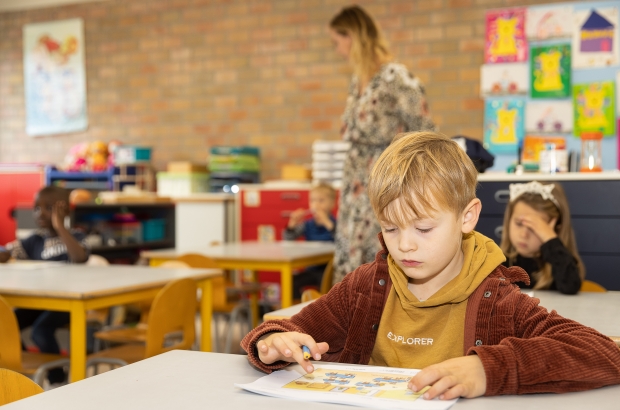- Daily & Weekly newsletters
- Buy & download The Bulletin
- Comment on our articles
Pre-schoolers struggling with language skills will get extra support, says Flemish minister
The results of the first Dutch-language screening of pre-schoolers in the Brussels region shows that 32% of the children in the third class of nursery school in the Flemish education system do not have sufficient language skills to start in primary school, Flemish education minister Ben Weyts announced in parliament on Thursday.
The screening was organised for the first time this school year in Brussels and Flanders. It aims to identify and help pre-schoolers with a delay in language development so that they have better chances in primary school. This appears to be necessary for 15% of pre-schoolers. Some 11% still need extra language support and four percent need intensive guidance.
The screening shows that there are important differences between schools. For example, there are more children with a delay in language development in the Brussels region. This concerns one in three (32%). In schools with many pupils who do not speak Dutch at home, 21% need extra support while 8% need intensive guidance. This is visible, among other things, in the city of Antwerp, where 28% of the children need support.
If one looks at the provinces, the figures are best in West Flanders, with 91% of pre-schoolers with sufficient language skills, 7% who can use extra support and 2% children who need intensive guidance.
Schools will receive extra resources to provide children with language support. The schools will also receive substantive support to set up qualitative language courses. For example, children can still be brushed up before the end of the third kindergarten class. If the backlog at the end of the school year still turns out to be too large, the class council can advise to postpone the transfer to primary school.



















